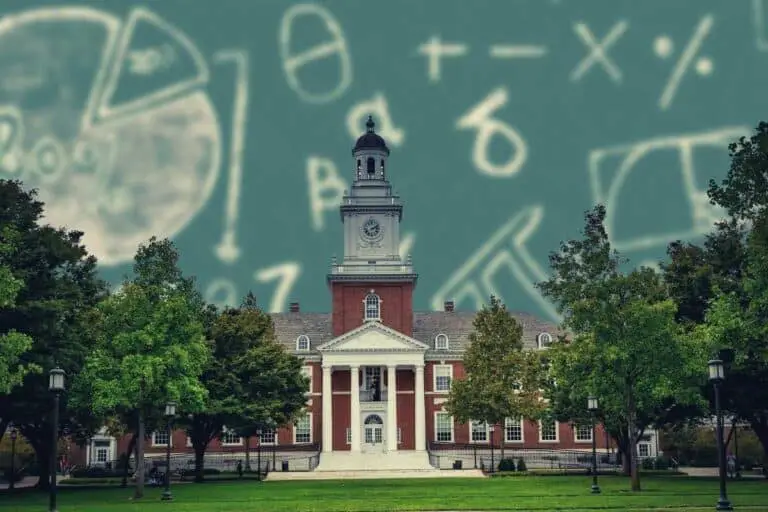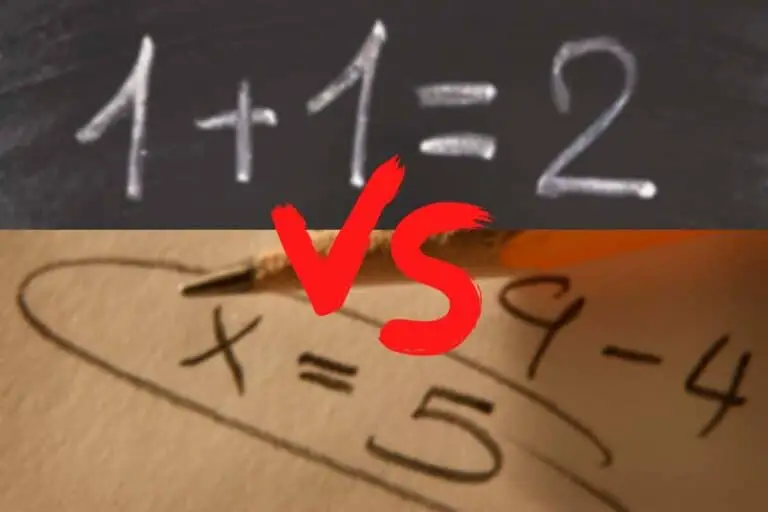Is Liberal Arts Math Hard?
Many people struggle with maths, not because it isn’t a fascinating and infinitely valuable subject but because of how it’s taught. Liberal art teaching frees maths from its abstractions and theory-heavy focus and applies mathematical concepts to the real world in which we live. The question is, is Liberal Arts Math hard?
Liberal Arts Math isn’t hard compared to the traditional vocational maths courses. It’s an engaging and interesting subject and takes maths out of its abstract theoretical models into the real world and uses mathematical concepts to foster critical thinking and problem-solving skills.
Often, maths students flounder because they can’t easily apply math concepts to the everyday world. Liberal Arts Math presents the subject in a more adaptable and flexible form that one may use in real-world applications. If you struggle with traditional math subjects, keep reading to learn why Liberal Arts Math isn’t difficult.

Liberal Arts Math Is Less Abstract Than College Math
Liberal Arts Math focuses on how mathematics applies to the real world and the relevance of maths in problem-solving and critical thinking. Straight math courses tend to have high levels of abstraction and use a specialized language of symbols to convey their meaning.
For instance, college algebra is a math requirement of many college courses. It’s often challenging for students who fail to understand the relevance besides needing the subject for their future careers. Liberal Arts Math teaches students about real-world math applications such as:
- Financial math
- Measurements and conversions
- Understanding and interpreting statistics
- Basic set concepts
- Problem-solving
- Logic
Liberal Arts Math Teaches Real World Applications
Liberal Arts Math is less focused on the intricacies of specialized math formulas than how to apply mathematical concepts in various fields and real-world applications. College algebra does teach problem-solving and critical thinking as a natural consequence of the course.
However, Liberal Arts Math teaching is about critical thinking and problem-solving skills using mathematics as an analysis and interpretation system. The real-world use of mathematical concepts makes maths less daunting as a subject, particularly for those who have had bad experiences in traditional math classes.
Liberal Arts Math Is Flexible
Unlike the rigid applications of traditional maths subjects, liberal arts maths isn’t bound by the concepts learned previously and is a link to a different area of linear study. Liberal arts math is a subject in itself and doesn’t require prior knowledge or focus on preparing the students for further mathematical study.
Liberal arts math is what is known as a terminal course, so students have the luxury of focusing on the key concepts and interpreting them more flexibly. Critical thinking skills are the focus of study, not the mathematical concepts themselves, leading to further study fields (source).
What Does Liberal Arts Math Degree Offer?
A liberal art math degree offers general quantitative reasoning courses and mathematical skills. The degree covers key algebraic, geometric, and statistics and computational skills and various real-world applications of mathematics such as finance, Probability Statistics, and Graph Theory.
Perhaps the misinterpreting of the word ‘liberal’ has given the liberal arts field a bad reputation. Liberal derives from the Latin term “liber’ meaning freedom and not in a political sense of liberal vs. conservative. The term ‘art’ is also misleading in that in its Latin meaning, ‘ars’ refers to skill and not art as in painting or music.
The liberal art mathematics model offers students the means to broaden their problem-solving and communication skills not only in the field of mathematics but for a wide range of professions. These skills may be applied to a wider range of vacations from software engineering to investment banking.
Liberal Arts Math Potential Careers
Although the initially projected earnings of a liberal art major may be slightly lower than their vocational counterparts, students should look at the future. In a formal study on liberal arts majors, researchers found that the average return on investment of the liberal arts after 40 years is $200,000 higher than the median for all colleges (source).
Some people argue that the world has never needed students from liberal art colleges more than now, in our rapidly changing modern society. These graduates have a robust framework for problem-solving, creativity, and communications skills beneficial to multiple fields and careers.
The highly adaptable skills of a liberal art major give these students an advantage over their vocational college counterparts. With the changing landscape of 21st-century automation and technology, hard skills may not have the flexibility to adapt.
On the other hand, the highly adaptable skills of the liberal arts major with its focus on problem solving and communication may become even more in demand. Liberal art math degrees can lead to a variety of fields outside strictly financial or mathematics-based careers such as:
- Project management
- Teacher
- Advertiser
- Research Analyst
- Social Worker
- Archivist
- Web developer
- Journalist
- Event Management
- Marketer
- Human Resource Management
What Is Liberal Arts Math Good For?
Liberal arts math is good for improving students’ reasoning ability and mathematical knowledge and thus improving quantitative communication. Unlike technical or vocational courses, liberal arts math leads to various career options that suit the students’ particular field of interest.
While science and medical students may have a clear path to employment set out for them, they can’t easily change their path of study should their interests lead elsewhere.
In long-term studies, students often change their attitudes to their majors of choice, which is often too late then to change courses with vocational and technical courses.
Liberal art math provides invaluable skills that students may use in various other disciplines and fields of interest. The skills of problem solving and qualitative and quantitative research are highly employable skills that may lead to a number of different career choices.
Conclusion
Liberal maths re-animates mathematics as an engaging and valuable tool to engage with the real world. Mathematical concepts become highly dynamic and far easier to understand and apply because the liberal arts explore maths in its action and not theory alone. The real-world flexibility allows students to apply the concepts learned to any field of their choosing.


